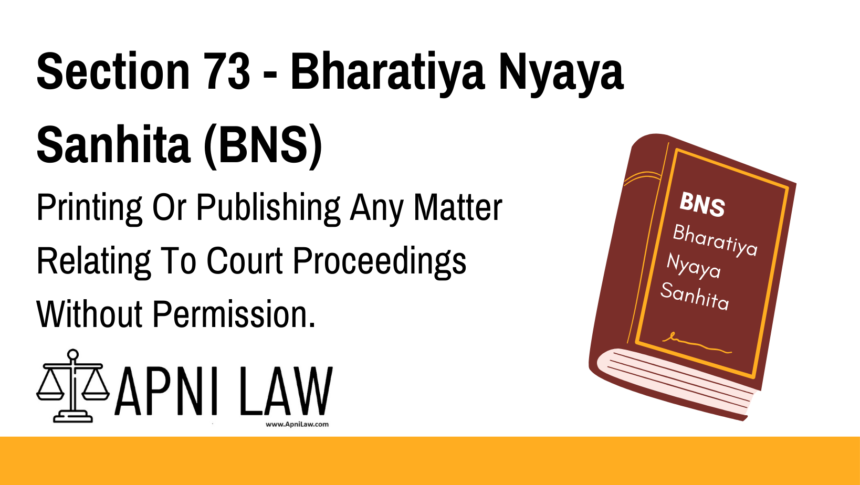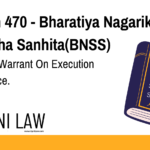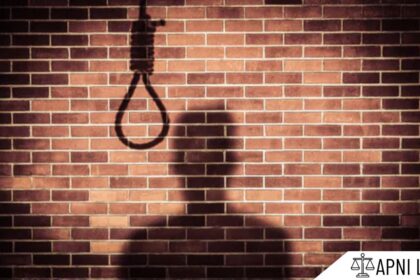Code: Section 73 BNS
Whoever prints or publishes any matter in relation to any proceeding before a
Court with respect to an offence referred to in section 72 without the previous permission of
such Court shall be punished with imprisonment of either description for a term which may
extend to two years and shall also be liable to fine.
Explanation.—The printing or publication of the judgment of any High Court or the
Supreme Court does not amount to an offence within the meaning of this section.
Explanation of Section 73 BNS
1. Purpose of Section 73 BNS
This section is aimed at preventing unauthorized publication of sensitive court proceedings, particularly those related to sexual offences and crimes against women, ensuring fair trials and protecting victims’ dignity.
2. Offences Covered Under This Section
This section applies to court proceedings related to the following offences:
- Section 63 BNS – Rape
- Section 64 BNS – Punishment for Rape
- Section 65 BNS – Rape of a Minor
- Section 66 BNS – Rape Leading to Death or Permanent Injury
- Section 67 BNS – Sexual Intercourse by Husband During Separation
- Section 68 BNS – Sexual Intercourse by a Person in Authority
- Section 69 BNS – Sexual Intercourse by Deceitful Means
- Section 70 BNS – Gang Rape
- Section 71 BNS – Punishment for Repeat Offenders
3. Punishment for Unauthorized Publication
- Imprisonment – Up to two years.
- Fine – Amount decided by the court.
4. Exceptions Under Section 73 BNS
- Court Approval: If a publication is done with court permission, it is not punishable.
- Interest of Justice: If publishing the details is necessary to uphold justice, it may be permitted.
Illustrations
Example 1: Newspaper Reporting Court Proceedings Without Approval
A media house publishes court proceedings of a rape trial without court permission. This violates Section 73 BNS, and they may face imprisonment and a fine.
Example 2: Social Media Post Sharing Confidential Court Details
A social media user posts details of a closed-door hearing in a sexual offence case. This act is punishable under Section 73 BNS.
Example 3: Court Permitting Publication for Legal Awareness
A court allows selective publication of case details to spread legal awareness. In this case, Section 73 BNS does not apply.
Common Questions & Answers
1. Can journalists report on sexual offence trials?
Yes, but they cannot publish details without court permission.
2. Can court judgments be published?
Yes, judgments can be published unless restricted by the court in specific cases.
3. Is sharing court proceedings on social media illegal?
Yes, unauthorized sharing of court proceedings on social media is a crime under Section 73 BNS.
4. What happens if a victim wants to share details of their case?
The victim can share their story, but third parties must seek court approval before publishing details.
5. Can a legal researcher publish a court case study?
Yes, but they must ensure anonymity and obtain permission if required.
Conclusion
Section 73 BNS safeguards the integrity of court proceedings by preventing unauthorized disclosures. It ensures that victims’ identities remain protected and that sensitive trials are conducted fairly.
For more legal updates, visit ApniLaw.











